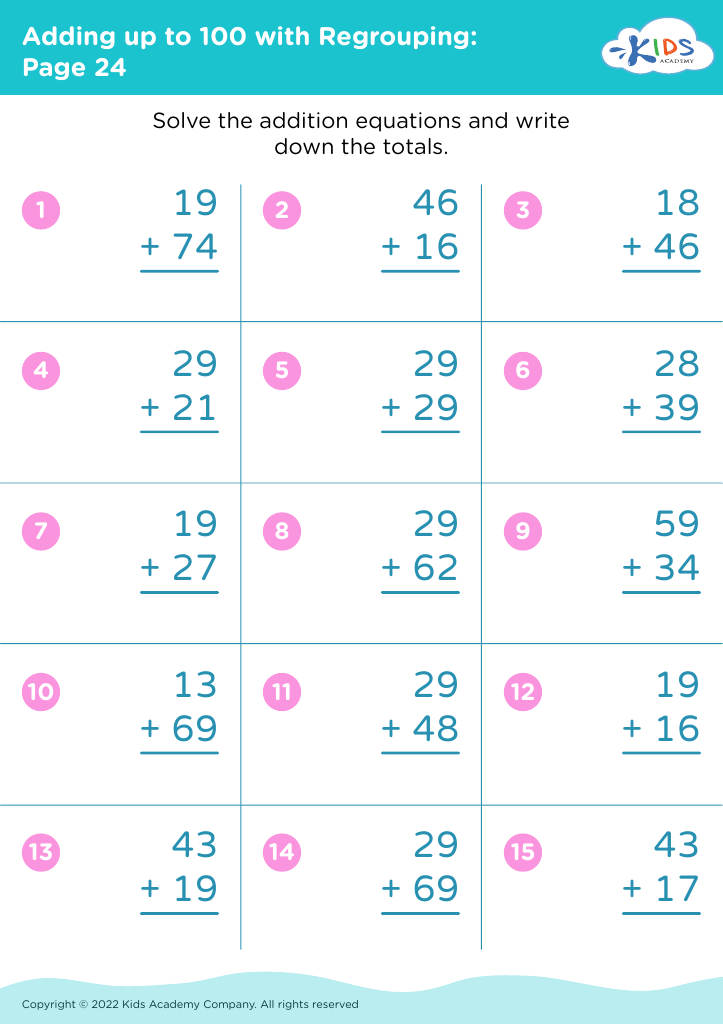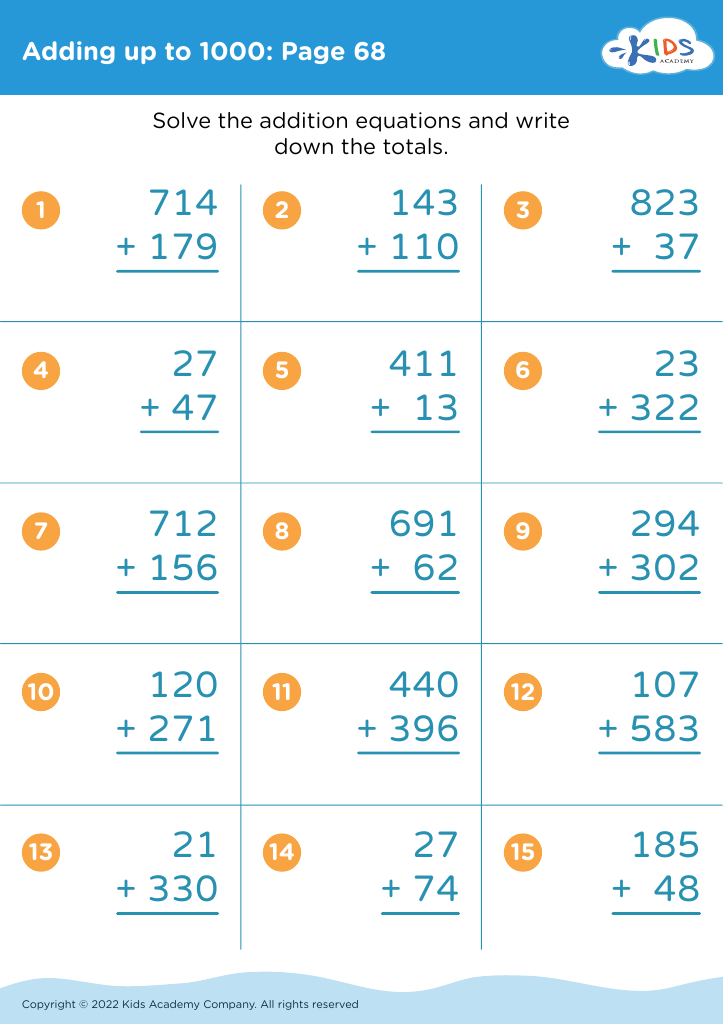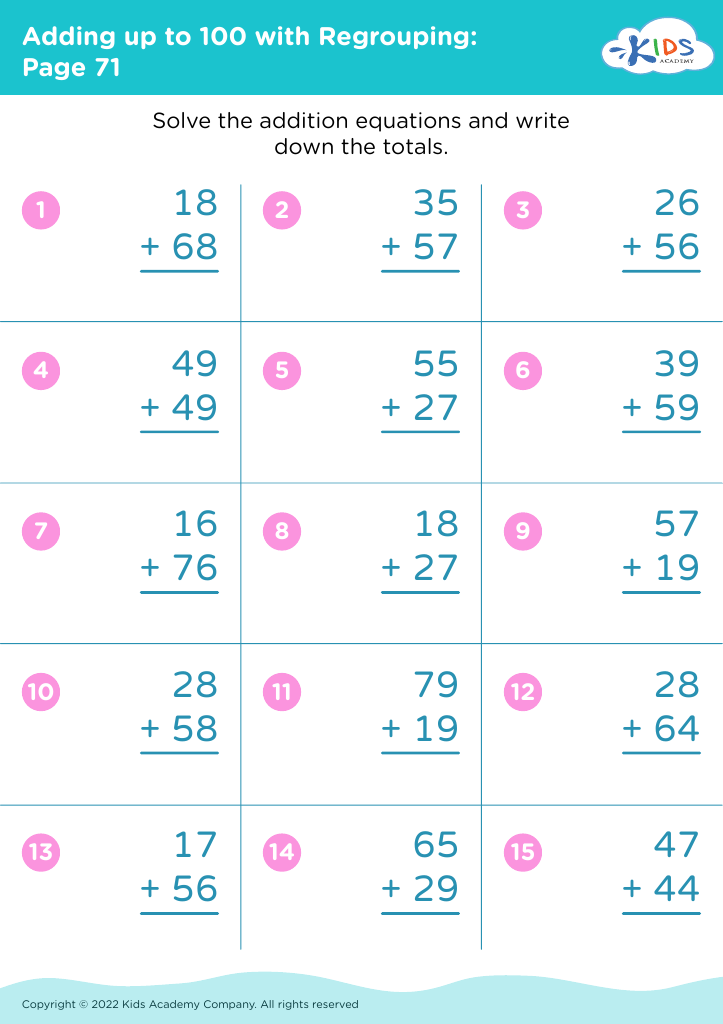Critical thinking skills Math Worksheets for Ages 3-7
10 filtered results
-
From - To
Boost your child's critical thinking skills with our engaging Math Worksheets designed specifically for ages 3-7! These interactive activities encourage young learners to solve problems, recognize patterns, and apply logic in fun ways. Our worksheets promote cognitive development while making math enjoyable. Each resource is crafted to support early math concepts like counting, addition, and shape recognition, enhancing problem-solving abilities. Tailored to different learning styles, these worksheets can be used at home or in the classroom. Sign up for Kids Academy today and access a variety of printable worksheets that prepare your little ones for future academic success while fostering creativity and critical thinking!
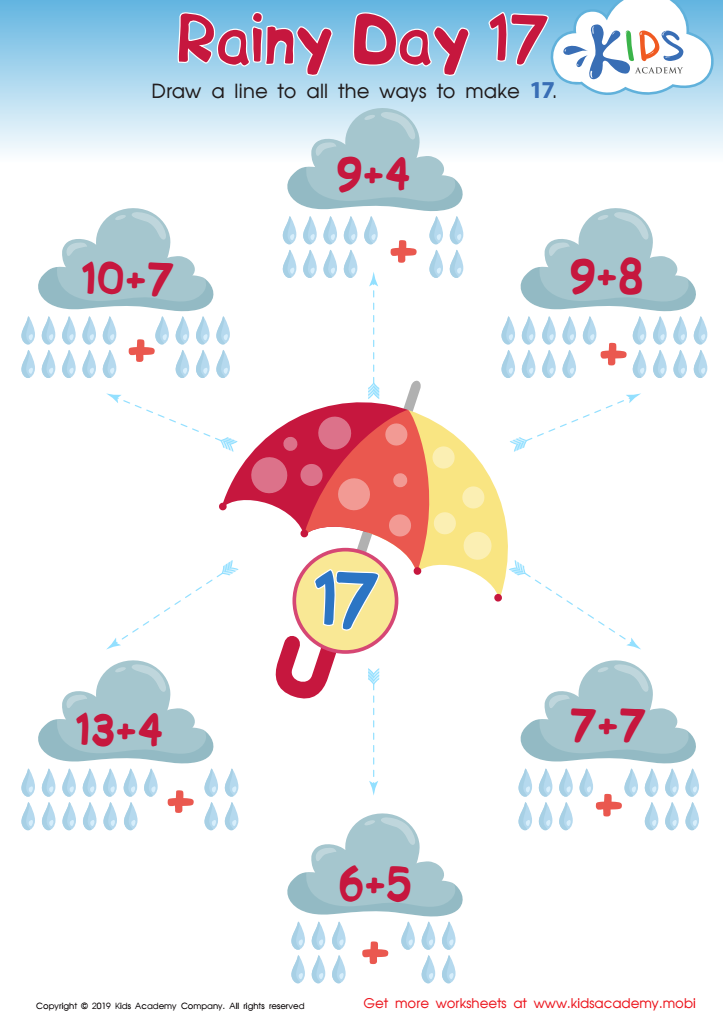

Rainy Day 17 Worksheet
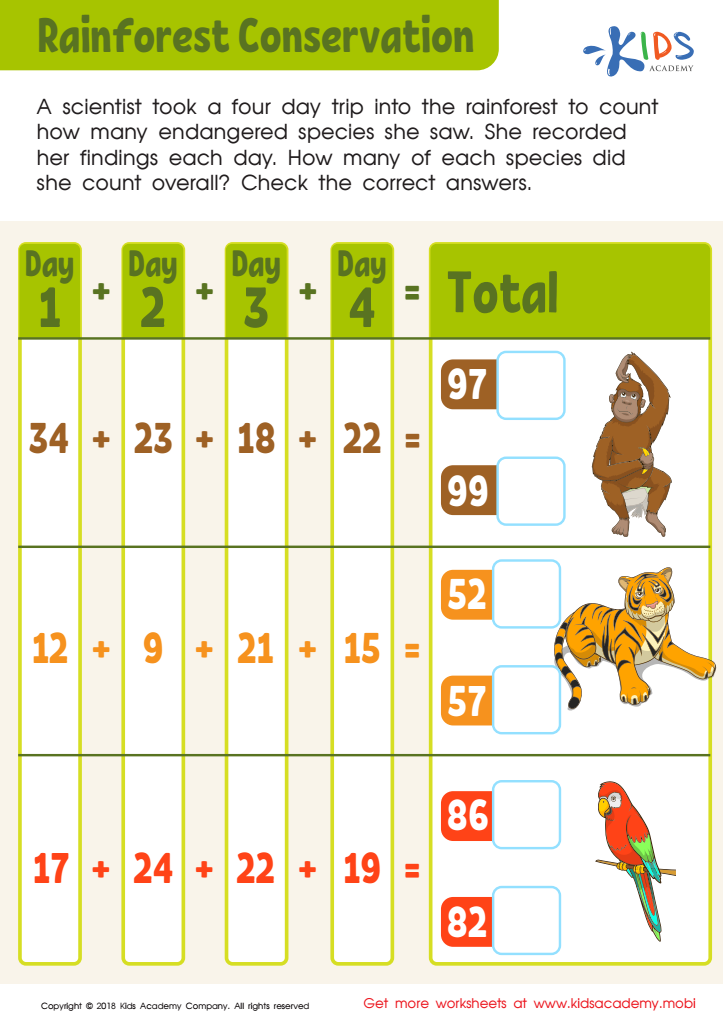

Rainforest Conservation Worksheet
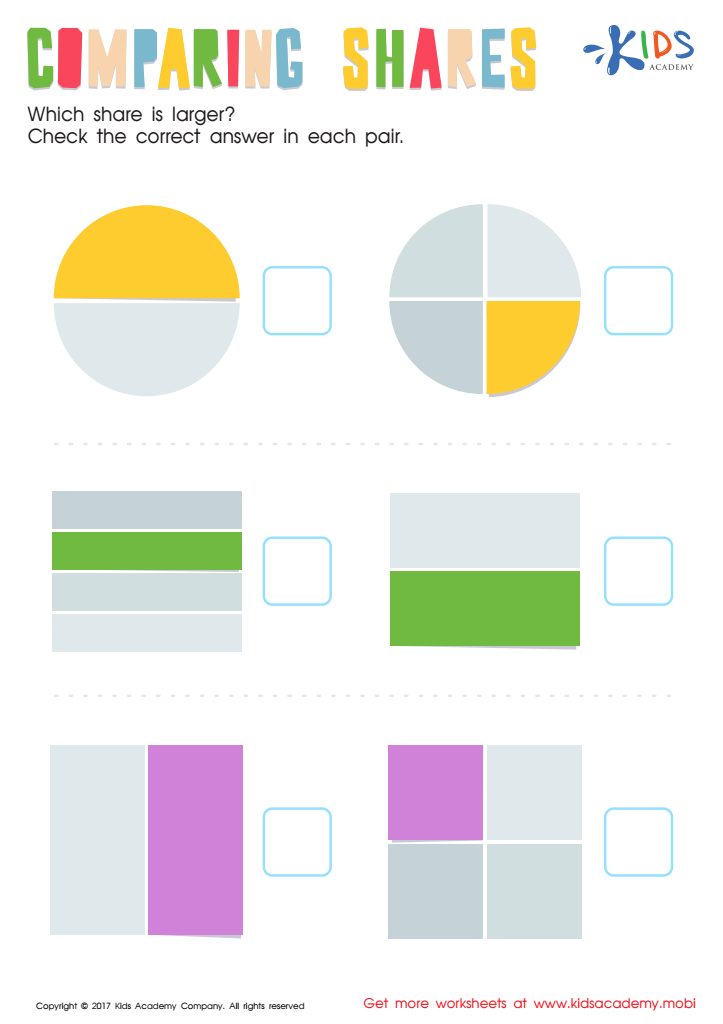

Comparing Shares Worksheet
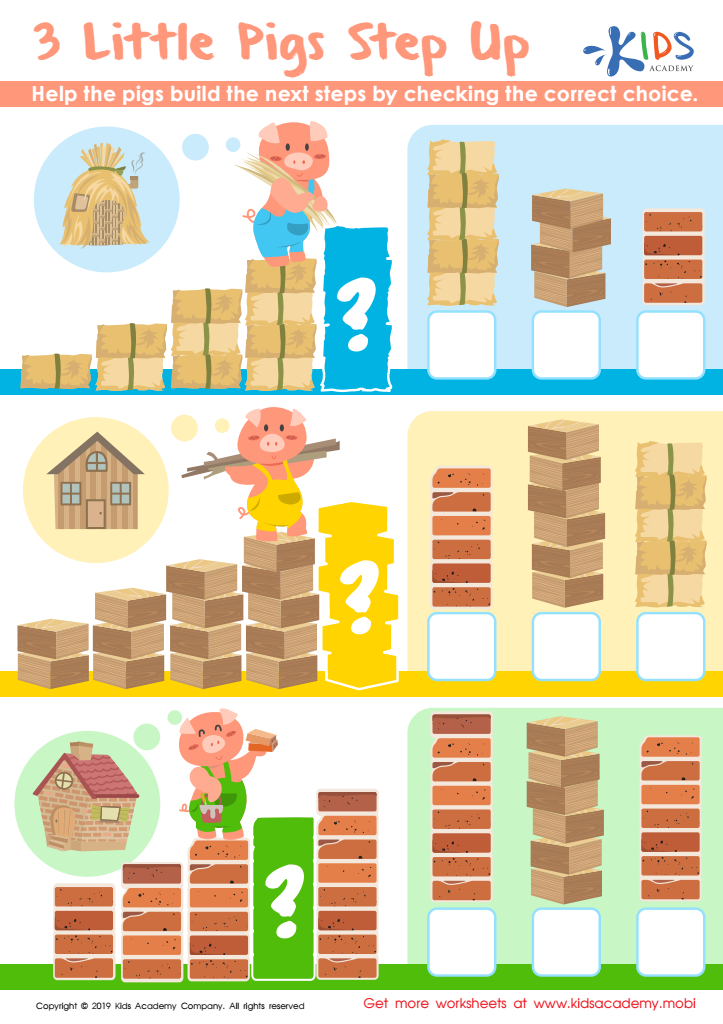

3 Little Pigs Step Up Worksheet
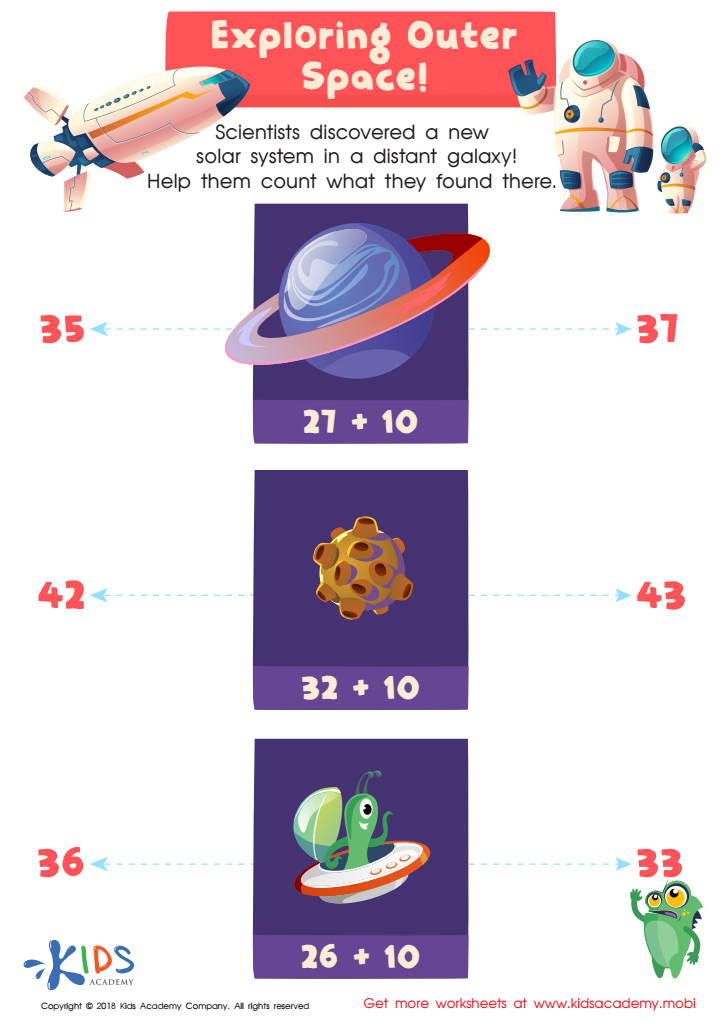

Exploring Outer Space Worksheet
Critical thinking skills in mathematics for children aged 3-7 are essential for their cognitive development and future learning outcomes. At this early age, children are naturally curious and eager to explore their environment. Encouraging critical thinking in math helps them to build a solid foundation for problem-solving and analytical skills that are crucial as they progress in their education.
When parents and teachers emphasize critical thinking in math, they help children learn to ask questions, make connections, and reason logically. This promotes a deeper understanding of mathematical concepts rather than rote memorization. For example, engaging young learners in activities that require them to compare quantities, make patterns, or solve simple puzzles fosters an inquisitive mindset.
Additionally, critical thinking enhances children's ability to approach everyday situations with a mathematical lens, where they can apply skills like estimation and classification. By promoting critical thinking in math, parents and teachers also instill persistence and resilience, helping children navigate challenges in both math and beyond.
Ultimately, developing critical thinking skills in these formative years not only prepares children for more advanced math but equips them with lifelong abilities to analyze, evaluate, and approach problems efficiently, essential for their overall success in school and life.
 Assign to My Students
Assign to My Students

